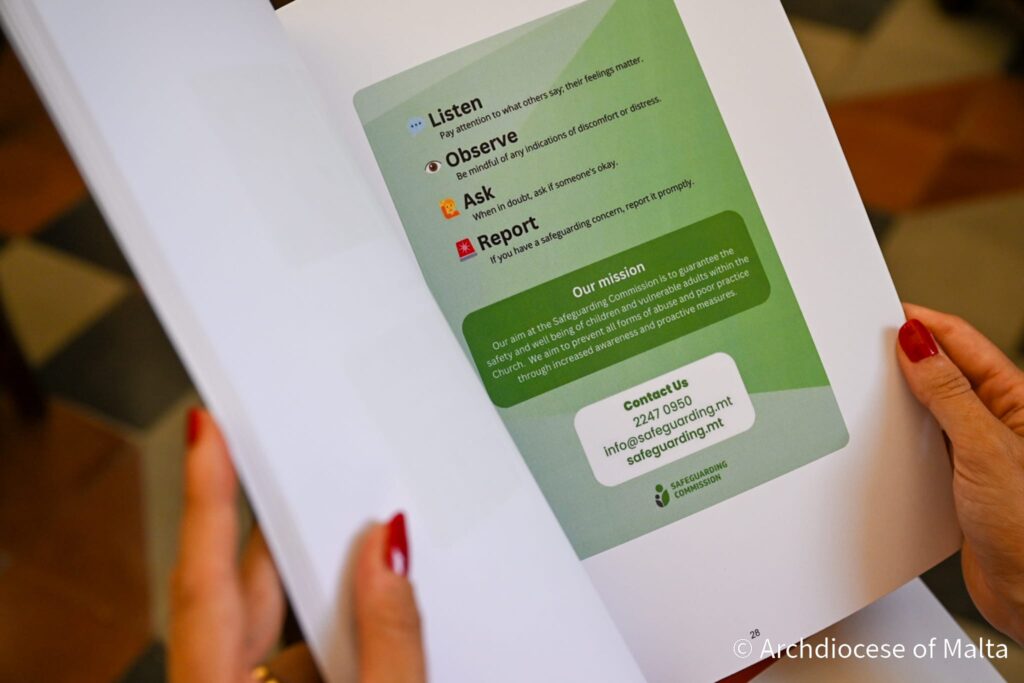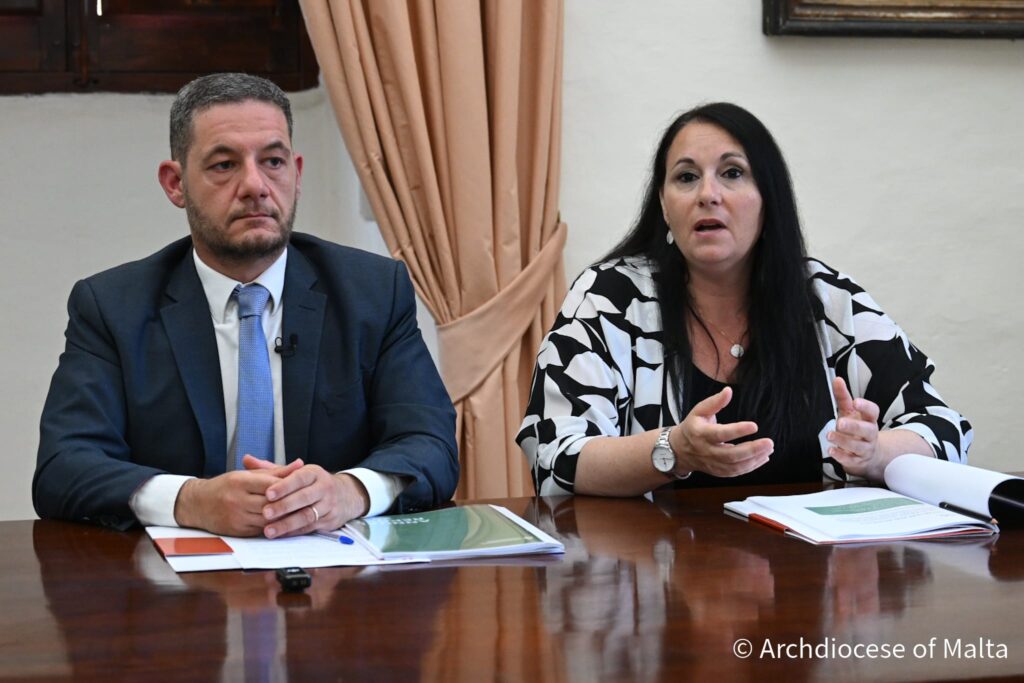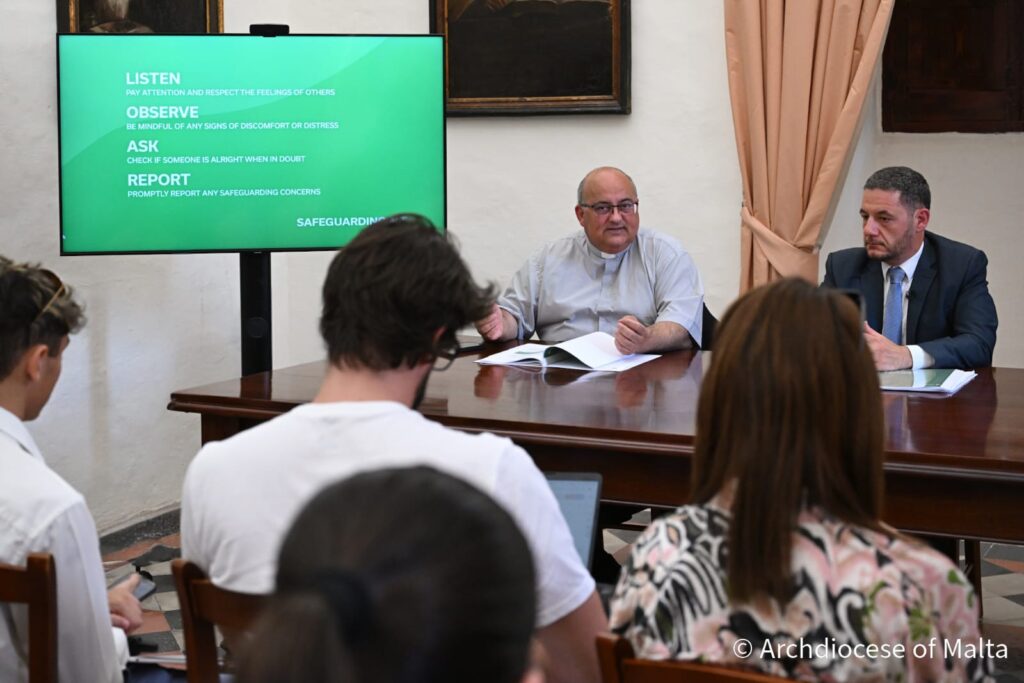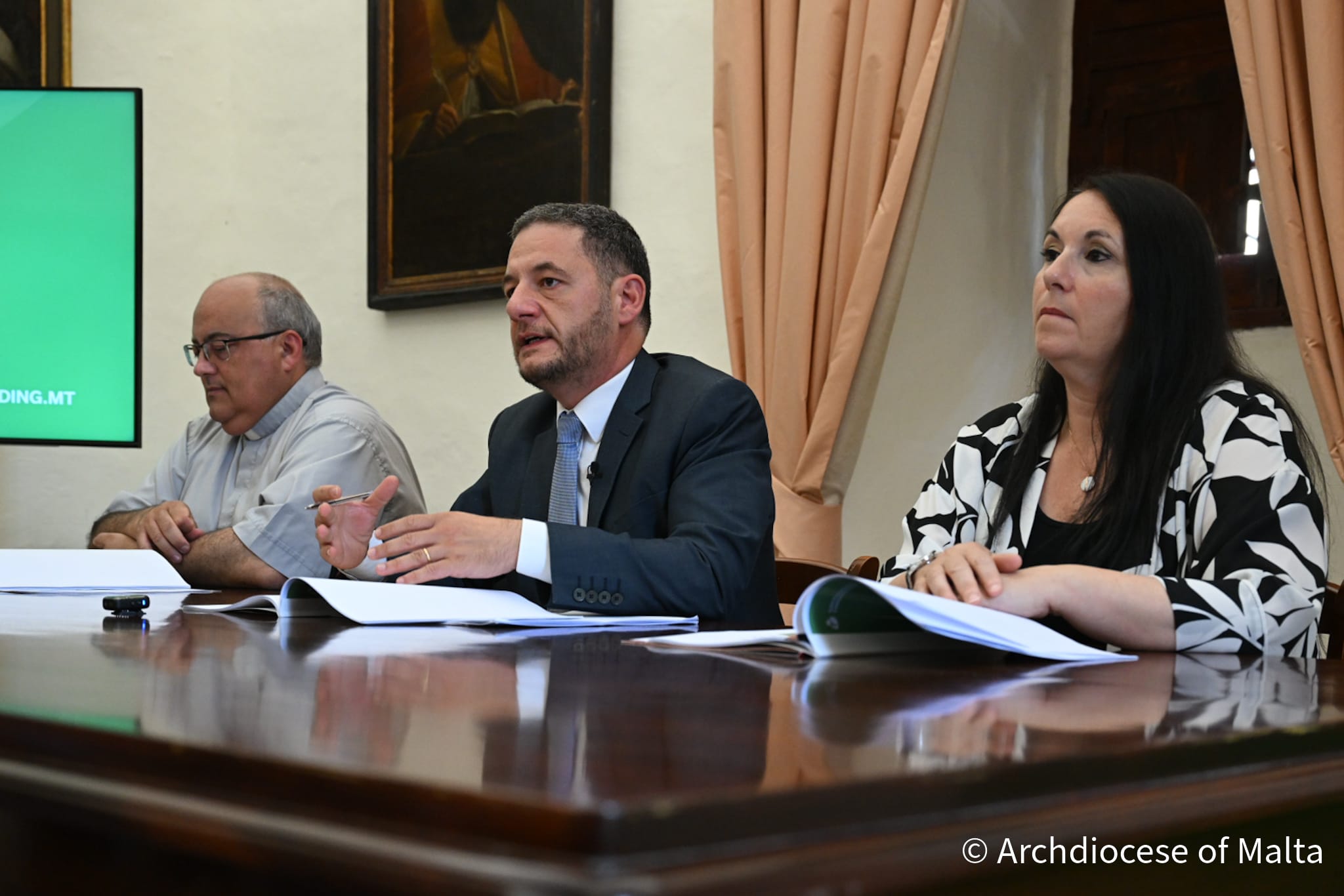The Safeguarding Commission concluded 26 cases in 2023, 18 concerning minors and eight involving vulnerable adults, Head of Safeguarding Mark Pellicano said.
Speaking at a news conference to review the year, Mr Pellicano said that four of the 18 cases concerning minors were found to be substantiated.
Two of these cases involved complaints of sexual abuse against diocesan priests. One cleric was referred to the civil authorities. However, the victim in the other case — who by the time of reporting was an adult — decided against proceeding with a police report despite an offer of assistance from the Safeguarding Commission. Restriction from public ministry was recommended in both cases.
The two other subjects of complaint in substantiated cases involving minors were laypersons. One of the cases involved sexual abuse, while the other involved sexual harassment. Both cases were referred to the civil authorities.
Regarding the remainder, one case was found to be partially substantiated, one was unsubstantiated, and one was not deemed to be a safeguarding concern. Five cases were processed by other bodies or bishops outside of Malta, while a further six required no further action.
From the eight cases concerning vulnerable adults — a category which includes people with limitations in resisting sexual or other forms of safeguarding concerns due to an imbalance of power — four were found to be substantiated.
Two of the subjects of complaint in these cases were religious, while the other two were laypersons. Restriction from public ministry was recommended in all four cases but no further action could be taken either because the victims declined to make complaints with the civil authorities or because no crime was committed.
Mr Pellicano, who presented his first report since succeeding Mr Andrew Azzopardi as Head of Safeguarding, explained that half of the cases concluded by the Safeguarding Commission in the past year were of a historical nature.
Mr Pellicano said: “The Safeguarding Commission is responsible for promoting safe environments within the Church in Malta through the implementation of preventive practices and training, as well as the provision of victim care and advocacy.

“We are currently in the process of refining the structure to provide more checks and balances between our investigative and fact-finding functions as well as creating a new unit within the Safeguarding Commission to provide subjects of complaint with adequate support.
“The Safeguarding Commission has also been carrying out an extensive review of its policy document, which will be published in the coming months following a consultative process.”
Mr Pellicano also explained that the Safeguarding Commission performs an important educational and preventative function. Last year alone, it carried out background checks on more than 5,500 people and provided 22 training sessions to over 1,300 Church personnel. It also embarked on two awareness campaigns.
To better fulfil its mission, the Safeguarding Commission established three teams within the Safeguarding Office to ensure separation of roles and responsibilities: the prevention and training team, the victim care and advocacy team, and the investigation and assessment team.
The Head of Safeguarding is responsible for overseeing the Safeguarding Office, acting as the main liaison with the Archbishop of Malta and the Conference of Major Religious Superiors, and serving as the direct link between all Church entities, statutory authorities and the Safeguarding Commission.

The Safeguarding Commission has since 2022 no longer been working with the Diocese of Gozo, which has set up its own Safeguarding Commission. This means that any allegation of safeguarding concern which takes place in Gozo is to be referred to the Bishop of Gozo or his delegate.
Further details and explanation can be found in the 2023 Safeguarding Commission report on safeguarding.mt.
About the Safeguarding Commission
The Safeguarding Commission is responsible for promoting safe environments within the Church in Malta. This is accomplished through the implementation of preventive practices and training, as well as the provision of victim care and advocacy.
The Commission is responsible for handling complaints, conducting preliminary investigations and risk assessments, and ensuring the well-being of those who have filed complaints, the alleged victims, as well as those who are the subjects of complaint.
The Safeguarding Commission upholds its mission to establish a secure Church through prevention programmes, personnel screening, investigation of safeguarding concerns and support for victims.

The Church in Malta is dedicated to fostering a safeguarding culture, with minors and vulnerable people being given priority in the development of policies, practices and procedures.
The Safeguarding Commission is dedicated to upholding the Church’s mission to ensure a secure and hospitable environment for all individuals who interact with it.
Safeguarding concerns referred to the Safeguarding Commission are investigated and assessed by a team of professionals who draw up a report which is scrutinised by the Safeguarding Advisory Board. The Board, composed of professionals from various fields — including psychiatry, psychology, social work, paediatrics, and counselling — is entrusted by the Church in Malta to work autonomously from the structures of the Church.





